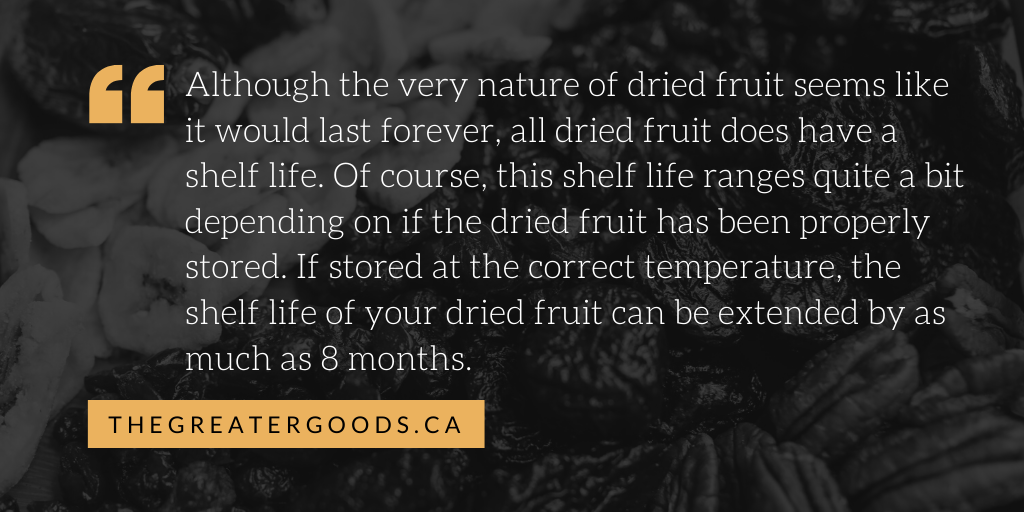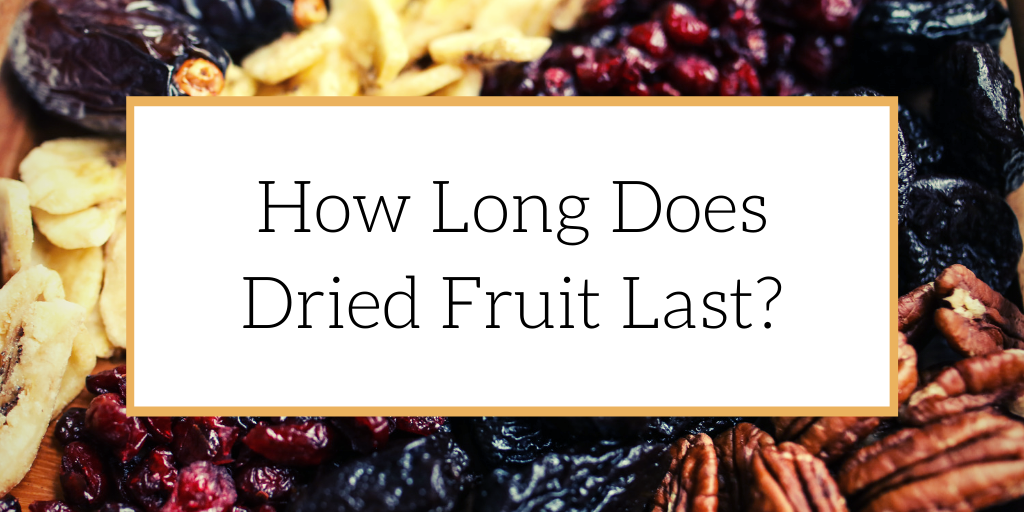Dried fruit is one of the easiest and most popular ways to eat fruit and is especially popular with hikers due to its convenience. It’s also a fantastic ingredient to have in your kitchen for including in your food products and recipes. However, due to the nature of dried fruit, it can be incredibly difficult to tell when it’s gone bad. Dried fruit does still have a shelf life, which depends on a variety of factors including best by date, the original drying method and how the dried fruit has been stored. In this article, we take a look at how you can get the most out of your dried fruit.
What’s Freeze Drying Fruit All About?
As you may know, “dried” fruit is actually freeze dried fruit. Which means that this crunchy snack was once indeed a soft, ripe fruit. But how on earth do you achieve this radical transformation and what are the benefits of freeze drying fruit?
Luke LaBorde, associate professor of food science at Penn State tells Epicurious.com what freeze drying fruit is all about:
“In the freeze-drying process (called sublimation, if you want to get geeky), the water in the fruit converts directly to vapor, shrinking and concentrating the fruit. It’s a longer, costlier preservation method, which is why you’ll pay more for freeze-dried. There’s typically one ingredient listed: the fruit itself. “Because there’s no heating step involved and no disruption of the tissue, you get far better quality,” LaBorde says.”
How Do I Store Dried Food to Extend Its Shelf Life?
The shelf life of virtually any food can be extended if you store it properly, with dried fruit being no exception. Of course, just as all ripe fruit is not created with an equal shelf life, that goes for its freeze dried counterparts as well. However, there are simple ways that you can extend the shelf life of any dried fruit, including freezing for long term storage.
Eatbydate.com explains how you can extend the shelf life of various dried fruits:
“You can help dried fruit stay fresh longer by storing it in your refrigerator or in your pantry in a tightly closed container to keep out moisture and other contaminants. Some fruits, like prunes which are moister than many of the others, enjoy the moisture of the fridge and taste better cold. For a long-term option, you can also store your dried fruit in a freezer. Freezing is supposed to be an indefinite form of storage, but after varying amounts of time most foods start to break down or develop freezer burn. Properly dried fruit seems to be an exception – it really does freeze well for extended amounts of time if properly sealed with an airtight sealer. Some benefits of proper food storage include eating healthier, cutting food costs and helping the environment by avoiding waste.”
What is the Recommended Time in Storage?

Although the very nature of dried fruit seems like it would last forever, all dried fruit does have a shelf life. Of course, this shelf life ranges quite a bit depending on if the dried fruit has been properly stored. If stored at the correct temperature, the shelf life of your dried fruit can be extended by as much as 8 months.
The National Centre For Home Food Preservation (NCHFP) tells us more on how you can extend the shelf life of your dried fruit:
“Recommended storage times for dried foods range from 4 months to 1 year. Because food quality is affected by heat, the storage temperature helps determine the length of storage; the higher the temperature, the shorter the storage time. Most dried fruits can be stored for 1 year at 60ºF, 6 months at 80ºF. Vegetables have about half the shelf-life of fruits. Dried foods kept in a good deep freezer can last almost indefinitely.”
Here at The Greater Goods, we offer consultation services for your business, from food production to distribution. If you’re looking for advice on how to get up and running, we offer a free consultation with our expert food industry consultants and food brokers.
